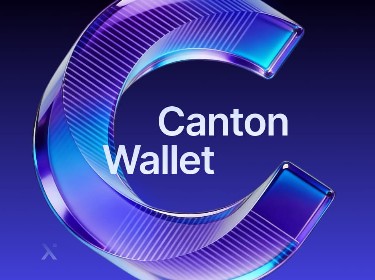Present-day journalism faces multiple challenges making it difficult to give people proper and honest news coverage. Does blockchain have the power to help journalism restore its credibility and reputation?
The digital era has brought journalists a great deal of fresh possibilities as well as new troubles. With universal access to the internet, attitudes to news have altered and the overall flow within the journalism industry has changed completely. With more effective channels to spread news, such as newspapers’ websites and social media, has come massive competition for readers’ attention and dependence on sponsors.
Blockchain is gradually conquering the media industry, promising to improve credibility and transparency of workflow. It is expected that the global blockchain market in media and entertainment will be worth $1 billion by 2023.
Can blockchain help journalists make their work more efficient and coherent, reduce their dependence on advertisements, and still attract an audience? You will find the answers in this article as well as learning about key applications of blockchain in journalism, and discovering some real solutions leveraging the technology.
What are the major difficulties faced by journalism?
Globalization and the need to cover an immense amount of news while competing with hundreds of publishers and media outlets creates great tension in the field of journalism. Reporters struggle with hardships such as the flow of fake news, the need to satisfy the interests of advertisers, media consolidation, censorship and the suppression of freedom of speech. Let’s take a closer look at these difficulties.
- Fake news — either by mistake or intentionally, journalists often spread fake information that can result in reputational disaster for the parties mentioned. The numbers speak volumes — 86% of internet users admit being fooled by fake news. The necessity to cover the news right then and there even worsens the situation, leaving little time for reporters to gather truthful evidence and do thorough research on the matter. This leads to frequent mistakes, misinformation and, consequently, lack of trust from the audience.
- Focus on profit margins — to continue functioning publishers have to satisfy the advertisers and promote their products and services even if they are of low quality and value. Also, information that is unfavorable for sponsoring companies can intentionally be omitted or changed.
- Media consolidation — unable to survive in this highly competitive environment, independent news providers are being swallowed up by huge media conglomerates. In 1983 the USA had 50 dominant media corporations whereas nowadays the number has shrunk to 5: AT&T, Comcast, Disney, News Corp and ViacomCBS. This leads to less pluralism in news topics, an increase in biased reporting, and less local news.
- Censorship — many countries do not allow journalists to cover certain topics and punish them by shutting down publishing companies, withdrawing press credentials, and even imprisonment. According to the survey of the Committee to Protect Journalists, 293 reporters were jailed and at least 24 journalists killed in 2021. Such conditions make it extremely dangerous to publish anything that may be viewed as provocative.
How blockchain solves the problems of journalism: key use cases
![]()
Blockchain brings solutions to some of the biggest challenges faced by journalism. Here is an overview of the benefits that can ensue when journalism collaborates with blockchain technology.
Crypto payments for authors
Incentives from readers and followers can enhance journalists’ motivation to investigate and write better. With cryptocurrencies readers can send money straight to the authors, skipping intermediaries. This can not only boost the quality of the content but is also a great option to support independent outlets and those covering controversial topics.
If authors are supported directly by their audience, they are much less dependent on money from advertisers. Consequently, media outlets can choose what promotional campaigns to say yes to and which ones to reject.
Incentives for reader input
Good journalists always need trustworthy sources of information and a good deal of human evidence. That is why it is so important to have engaged readers who willingly share what they know. And incentives in the form of crypto coins or tokens are a great option to stimulate reader involvement. It can work not only for informers, but also as a means of motivation to leave a comment or share an article.
How does blockchain help raise money for crowdfunding projects? Read our article
Permanent archives
With hundreds of articles and news items published every year it is easy to lose some original pieces due to the human factor, broken links, or website malfunction. However, all news published on blockchain journalism platforms stays there forever and is easily accessible when needed. What’s more, no one can discreetly change anything on blockchain, so all the data is stored immutably and is tamper-proof.
Articles as NFTs
The technology of non-fungible tokens brings two valuable benefits to journalists. First, once your article is tokenized, your name is tied to it forever. So if someone decides to use it without your permission, it will be easy to prove your ownership. Second, journalistic NFTs can be sold to devoted readers, thus generating additional revenue and strengthening the relationship with your audience.
Quartz, a web news platform, has already sold one of their articles as an NFT, generating $1,800 in revenue. What’s more, they will gain 10% of the value of each secondary sale of this NFT.
Enhancement of freedom of speech
As blockchain platforms are decentralized, no authority can prohibit publication of any news item or article. Also, such a platform cannot be shut down even if the government demands it. This can contribute greatly to freedom of speech, enabling authors to cover important stories and events.
Fighting fake news
Blockchain news platforms can help significantly reduce the spread of fake news. With blockchain content distribution, articles contain immutable metadata, so if some news turns out to be fake, the author will be easily traced and can be accused of disinformation, having no opportunity to alter the original piece. This will make journalists think twice before making any unchecked or misleading statements as it may cost them career and reputation.
Reliable databases
Blockchain can be used to build databases of verified and trusted data and information on different topics which can later be referred to and cited in news pieces and articles. Depending on the type of platform — public or private — access to these databases can be customized to protect sensitive information.
Take a look at DocFlow — a document management system powered by blockchain
Limitations of blockchain in journalism
The wide adoption of blockchain in journalism is limited due to such factors as lack of regulation, the need to alter workflows and change equipment, and, most importantly, a lack of understanding of the technology amongst the majority of people.
- Lack of regulation — unfortunately, there is still no consensus on how to treat blockchain-based assets such as coins and NFTs, and what regulatory measures to apply to them. What are these assets — intellectual property, commodities, securities? The absence of clear rules and standards makes it difficult to maintain an effective workflow.
- Equipment and trained staff — blockchain technology is complex and requires specific competencies and expertise. On top of that, blockchain demands powerful equipment to process transactions fast and flawlessly. Both training people and obtaining good tech can be quite costly. And integration of the technology into existing systems will also take time and effort.
- Spreading the idea to people — even though blockchain has become a global buzzword, the majority of people still don’t understand how it functions and where its value lies. According to a survey, only 25% of US adults know what blockchain is really about. Some time is likely to pass before awareness and interest are widespread.
However, as more and more big enterprises acknowledge blockchain’s value by introducing it into their working processes, and more emphasis is put on spreading knowledge about the technology, these issues will soon be fixed.
What is going on with NFT regulation? Find out in our overview
Top blockchain journalism platforms
![]()
There are already several journalism platforms that run on blockchain. Let’s take a look at the top 3 projects: Popula, Mindzilla, and Trueinchain.
Popula
Popula is a web news, arts, and culture magazine which uses blockchain to enhance its workflow. On Popula you can tip your favorite authors in Ethereum cryptocurrency (ETH). To leave a comment on the platform you also need to pay a fee of 5 cents in Ether. This way Popula protects conversations from trolls and fakers as well as raising enough capital to keep the platform ad-free. The magazine also stores its archive on blockchain, making it immutable and permanent.
Mindzilla
Mindzilla is a news platform that leverages the technologies of blockchain and AI. Mindzilla encourages institutions to publish their own research on the platform and motivates individuals to share useful insights. The platform has a token-based funding model for its contributors.
Besides, Mindzilla’s AI system tackles misinformation by determining the relevance and accuracy of information using a process free from human judgment and bias.
Trueinchain
Trueinchain uses blockchain to fight fake news. The platform gathers a community of debunkers who are incentivized and rewarded for their contribution. With Trueinchain you can report news you consider to be fake.There is a form to fill out where you insert the link to the news and add a comment explaining why it seems fake to you.
How to get started with a blockchain-based journalism platform
To successfully introduce blockchain into a journalism-based project, it is necessary to come up with the answers to the following questions:
- How will blockchain fit into the project’s overall strategy? What specific problems do you want to solve?
- What are the goals of your project? Will you use blockchain only for secure storage and maintenance or will you leverage other possibilities, such as crypto incentives or NFTs as well?
- Do you have a big enough budget for equipment and training?
- What blockchain will you choose to power the project? For example, Ethereum is the most popular one, yet Flow and Cardano have much faster transaction speed — do your research.
- What type of platform will it be — private or public, or a combination of the two?
To ensure smooth and proper work with such complicated and sophisticated technology, choose a team that has vast experience in building blockchain solutions and will not only follow your specifications but also provide advice and guidance along the way. We recommend you to check the developers’ portfolio and see what blockchain projects they have under their belt. Innovative ideas and professional people are the perfect combination.
Thinking about building a blockchain project? Our article will help you make well-grounded decisions
Conclusion
The digital age challenges journalism in a lot of ways, yet it also offers new solutions. Blockchain is among the most interesting. With this technology journalists can significantly improve the quality of their articles by reducing their dependency on advertising, enhance reader-author relationships, maintain everlasting archives, and fight fake news and censorship.
With such an impressive pool of applications, the future of blockchain in journalism seems assured, with both journalists and readers benefiting from this collaboration.
Interested in bringing innovation to journalism? PixelPlex blockchain experts will gladly consult you on any questions you may have, and work out a strategy for a robust blockchain journalism solution. Any idea will be executed perfectly by our development team, which can boast 80+ successfully delivered blockchain projects. Don’t wait until others bring your idea to life — contact us and become a leader in the industry.




